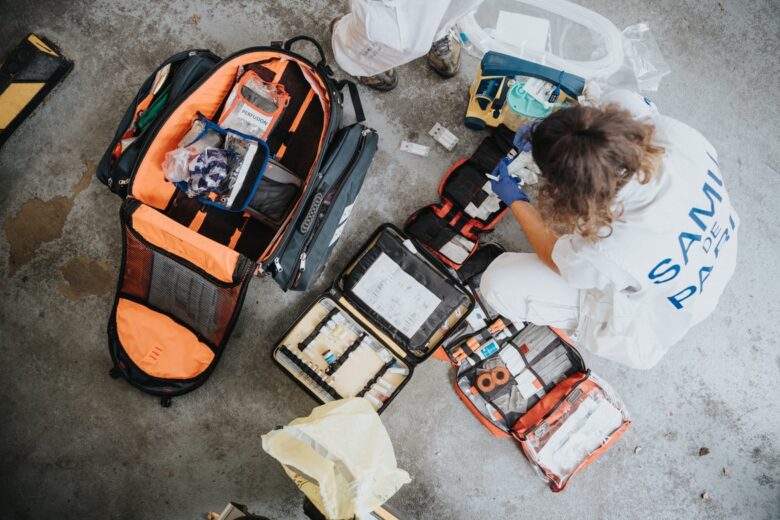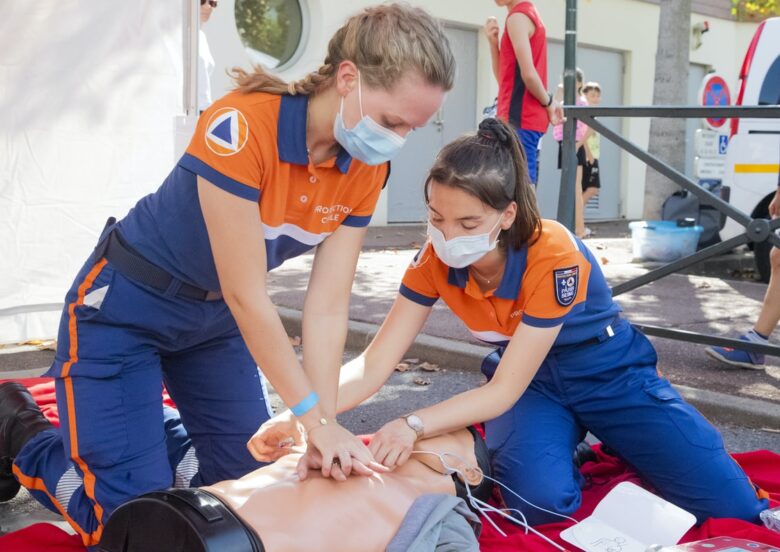One of the most essential roles in the medical system is that of paramedics. They are the first responders in emergency circumstances, which means that in many cases, they are the ones who can save an individual’s life.
It takes a lot of commitment and hard work to become a paramedic. Being a paramedic may be gratifying, but it can also be frightening at times, according to most people who work in the emergency medicine field. Interacting with individuals in life-threatening situations asks for a great deal of compassion, but you must also be able to keep your cool when the situation demands it.
If a job as a paramedic has piqued your interest but you are not sure if it’s the right fit for you, we are here to help you decide. Below are four of the most-asked questions aspiring paramedics have, together with the answers that should help you make an informed decision.
1. What are the responsibilities of a paramedic?

The duties of a paramedic vary a lot based on the field they are working in, as well as the state they perform their job in. They usually work with firefighters and police and provide assistance on emergency scenes. Paramedics are responsible for examining patients on the scene, administer medication if necessary, operate medical equipment, as well as transport patients to hospitals or medical facilities.
In cases of transmissible diseases, paramedics are the ones that need to minimize contamination risks and provide information to the emergency room staff. They are also responsible for ensuring the equipment on the ambulance works properly before assisting an emergency, replace supplies and keep records of their interventions.
In many cases, paramedics don’t work alone, but in teams of two – one driving the ambulance, while the other cares for the patient until they get to the hospital. Other paramedics may work in helicopter flight crews, transporting patients that are seriously injured or ill.
Some people believe paramedics and nurses are one and the same, but that is not exactly true. Although they share similar responsibilities, paramedics and nurses or physician assistants have very different jobs. Paramedics specialize in out-of-hospital emergency medicine, while nurses and other health care professionals have their own roles inside the health care facility.
2. Which type of certification do I need?

Working as a paramedic does not have strict education requirements, such as the need for a university degree, but you will need to have finished high school and provide a diploma to be able to register for the training course.
In order to become a paramedic, you will start by completing an EMT basic training course, and get certified as an emergency medical technician first. During the training, you will gain the necessary skills needed to act in life-threatening circumstances. After completing the course, paramedics can get an associate degree. While the course is similar for both emergency medical technicians and paramedics, the length of the training process differs, with paramedics needing to complete a 6–12-month course while EM technicians can get their degree in just a few short months.
After finishing courses, you need to get your paramedic license. The requirements vary with every state, but usually, it requires paramedics and EMTs to pass the National Registry of Emergency Medical Technicians (NREMT) exam. Keep in mind that your license may need to be renewed every few years.
Paramedics perform what is known as advanced life support (ALS), also CPR, which remains the most important form of training. Despite being regarded as base-level training, CPR is still the most important one, as paramedics often rely on basic first aid skills more than ALS skills, especially when it comes to saving lives. ALS, on the other hand, helps keep the patient alive after basic first aid was applied to stabilize them.
3. Are there any soft skills I should work on developing?

Becoming a paramedic does require, besides medical skills, some personality traits that will make all the difference. The ability to handle stressful situations with calm and keep your focus has to become second nature for a good paramedic, in order to help patients overcome what can be the most difficult moment of their life. Good communication skills are also important, as you may sometimes have to deliver bad news to the friends and family of the patient and help them remain calm.
Strong critical thinking skills, as well as problem-solving abilities, are also required. This will allow you to evaluate situations fast and come up with the best possible solution. Some situations may require you to adapt to the most unusual circumstances, so you need to act in a timely manner, while also seeking a positive outcome.
While physical strength is not necessarily a requirement, stamina sure is. You will be constantly on the go, running from one place to another, working long shifts, so you need to be in good physical shape.
To better improve your skills and get more experience in the field, it is recommended to spend some time working as an Emergency Medical Technician. This will also help you decide if becoming a paramedic is the right choice for you.
4. Do paramedics work only on ambulances?

Of course, most of the time, you will hear about paramedics serving on an ambulance. In fact, almost 50% of all paramedics and EMTs work in the ambulance service. It is, after all, what all EMT classes focus on.
But apart from ambulances, paramedics can also work on air ambulances (helicopters), which are used to transport patients from dangerous accident scenes. For example, victims who need immediate hospitalization might be picked up in a helicopter, rather than an ambulance.
For those with a taste for adventure, becoming a military medic or a tactical EMS might be a more interesting job. Tactical EMS or TEMS are paramedics that train and work with SWAT teams to assist on their mission. While there are very few of them in the country right now, the interest seems to have increased in recent years.
Firefighters also need to have EMT training, and sometimes they may also be required to have paramedic certification in order to get the job. As firefighters do have quite some job and retirement benefits, you will have some serious competition when applying for a job.


